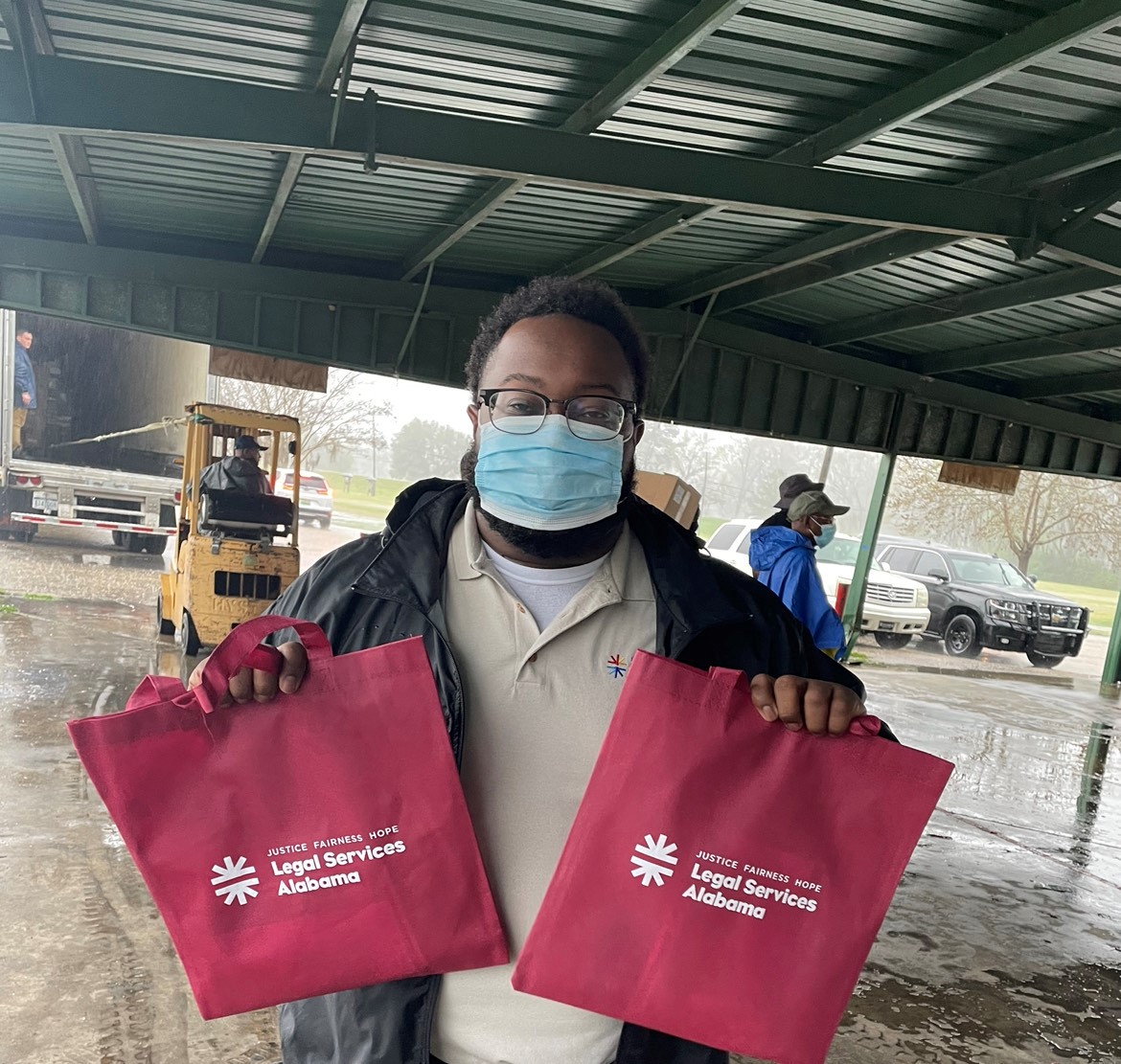Legal Aid for Low-income Alabama

Iesha Smith had recently moved from Tennessee to Huntsville, AL where she was a co-signer on a lease with roommates. She began teleworking customer service at AT&T and decided to move into a new home by herself. She then started seeing money missing from her checks. She was completely unfamiliar with wage garnishments and had no idea where her money was going. After months of earning paychecks that only afforded her a cellphone, she had to leave her home in Huntsville. She tried to live in a motel for a period; unable to afford it, she was forced to sleep in her car. Without consistent access to the internet, she was forced to leave her telework position. She found a new, in-person job, and the garnishments continued.
She was in-between living out of her car or on friends' couches, her finances were still shrinking, and her mental health was in decline. She had to seek therapy and begin taking prescription medicines to manage her depression and anxiety. Her depression began to show outwardly and take a noticeable toll on her job performance. Noticing her struggles, a coworker checked in with her to ask what was causing her depression. She admitted that significant amounts of her paychecks were going missing, and she had no idea what the source of the issue was. Her coworker explained the process of wage garnishments and encouraged her to reach out to Legal Services Alabama (LSA).
When LSA Huntsville Staff Attorney, Pamela Jackson, was assigned Smith’s case she dove into Smith’s financial, employment, and housing history to discover the source of the garnishment was Smith’s old realty company from her first home in Huntsville. The realty company had a money judgement against Smith and her former roommates that held her responsible for their claimed fees.
Jackson managed Smith’s case for over four years, contesting every claim made by the realty company. Smith reports that Jackson's support - both legally and emotionally - was integral in managing her mental health during this time. Jackson's consistent communication and uplifting attitude made Smith feel confident that she was being taken care of and that the garnishments had an end in sight. After working together for the better part of five years, Smith says that LSA feels like a second family to her. Thanks to Jackson's legal representation, Smith was able to receive repayment of the garnished wages she reported and avoid continuously losing money to the realty company. She also received enough money back to pay rent on a new home where she and her partner now live with their two children. Without LSA, Smith could still be homeless.
LSA encounters client stories like Iesha’s every day. While most cases don’t take years to close, low-income people across the state face similar barriers while working toward stability and security.
Every year, thousands of low-income Alabamians seek free legal help from LSA however, for every individual that is successful in obtaining help, there are even more who could not receive services due the demand for legal help among the poor in Alabama far exceeding our current staff’s capacity.
In recent years, there has been an increase in the demand for individuals seeking legal representation, a portion of this increase is due to the issues surrounding the pandemic. But before the pandemic, LSA was experiencing an increase in the demand for representation in the areas of housing and foreclosures, domestic violence, debt collection, benefit denials, voting rights restoration, court fines and fees, and expungement requests, and we could not represent all clients because of our limited capacity. The cases and the lack of representation keep low-income and impoverished communities at a disadvantage for employment, economic empowerment, and exercising their fundamental rights.
LSA has eight offices and a centralized Call Center, working together to fulfill its mission statement: To serve low-income people by providing civil legal aid and by promoting collaboration to find solutions to problems of poverty. LSA is the only non-profit law firm providing free, civil legal assistance to low-income Alabamians across all 67 counties.
LSA helps low-income individuals by providing representation on critical legal matters in judicial and administrative forums, timely legal counsel and advice, and effective mediation services that keep disputes out of the court system. LSA also engages communities with preventative legal education around rights and responsibilities, as well as offering a variety of legal self-help materials, including an animated series that answers clients’ most frequently asked questions in an accessible format.